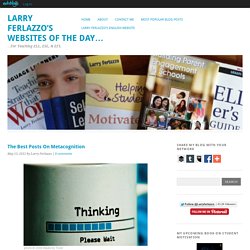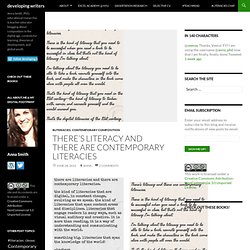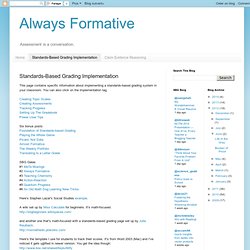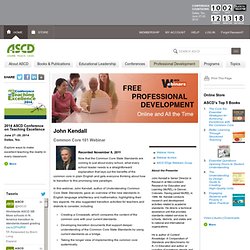

Brian Callahan
In Reading « Teaching the Core. My Best Posts On Metacognition. Helping students strengthen their understanding of metacognition — thinking about their thinking — is an important goal of my teaching.

And I’ve written a lot about it. I thought it would be helpful to gather all of those posts in one “The Best…” list. Here are My Best Posts On Metacognition: How People Learn:Bridging Research and Practice is a new book from The National Academy Of Sciences and can be read for free online. It focuses on three teaching strategies — activating prior knowledge, focusing on big concept ideas and encouraging pattern recognition, and developing awareness of metacognition. Do Students Know Enough Smart Learning Strategies? Metacognition and Student Learning is from The Chronicle on Higher Education. Bringing Metacognition into the Classroom is by Lizzie Pinard. The Importance Of Explaining “Why” My top ten learner autonomy and metacognition resources is from Lizzie Pinard. The role of metacognition in language learning is by Lizzie Pinard.
Feedback is welcome. Related. Formative Assessment Strategies / Overview. #literacies. There’s Literacy and There are Contemporary Literacies « developing writers. Where did these come from?

Via Twitter, I came across the idea from Mrs. Baldwin and her class at Anastasis Academy to use the memo below (claimed to be given to Apple employees on their first day of work) as inspiration to do some end-of-semester reflection in a content area literacy and language development course on what it means to be literate. Above are some of the responses that all coincidentally chose a similar starting point: There’s literacy and then there are contemporary literacies. The letters above were typed in the online program lettrs.com, a website dedicated to creating a digital space for s…l…o…w…. composition. Since the explosion of digital, we think people are communicating more, but saying less. Like this: Like Loading... 52 Interesting Facts That You Must Know !!! Standards-Based Grading Implementation. This page contains specific information about implementing a standards-based grading system in your classroom.

You can also click on the implementation tag. Creating Topic ScalesCreating AssessmentsTracking ProgressSetting Up The GradebookPower User Tips Six bonus posts:Foundation of Standards-based GradingPlaying the Whole GamePicard, Not DataAlmost FormativeThe Weekly PortfolioTranslating to a Letter Grade SBG Galas #1 MeTa Musings #2 Always Formative #3 Teaching Chemistry #4 Action-Reaction #5 Quantum Progress #6 An Old Math Dog Learning New Tricks Here's Stephen Lazar's Social Studies example. A wiki set up by Miss Calculate for beginners. And another one that's math-focused with a standards-based grading page set up by Julie Reulbach.
Here's the template I use for students to track their scores. Most of what I started with was from Classroom Assessment and Grading that Works by Marzano. The Foundation of Standards-Based Grading. Webinars - John Kendall, Common Core 101. Recorded November 8, 2011 Now that the Common Core State Standards are coming to just about every school, what every school leader needs is a straightforward explanation that lays out the benefits of the common core in plain English and gets everyone thinking about how to transition to this promising new paradigm.

In this webinar, John Kendall, author of Understanding Common Core State Standards, gave an overview of the new standards in English language arts/literacy and mathematics, highlighting their key aspects. He also suggested transition activities for teachers and districts to consider, including Creating a Crosswalk, which compares the content of the common core with your current standards.
Developing transition documents that support deeper understanding of the Common Core State Standards by using current standards as a bridge. Resources.
Teaching English. Writing. Technology. School/Education. Media Literacy. RTI. Poetry. Common Core.